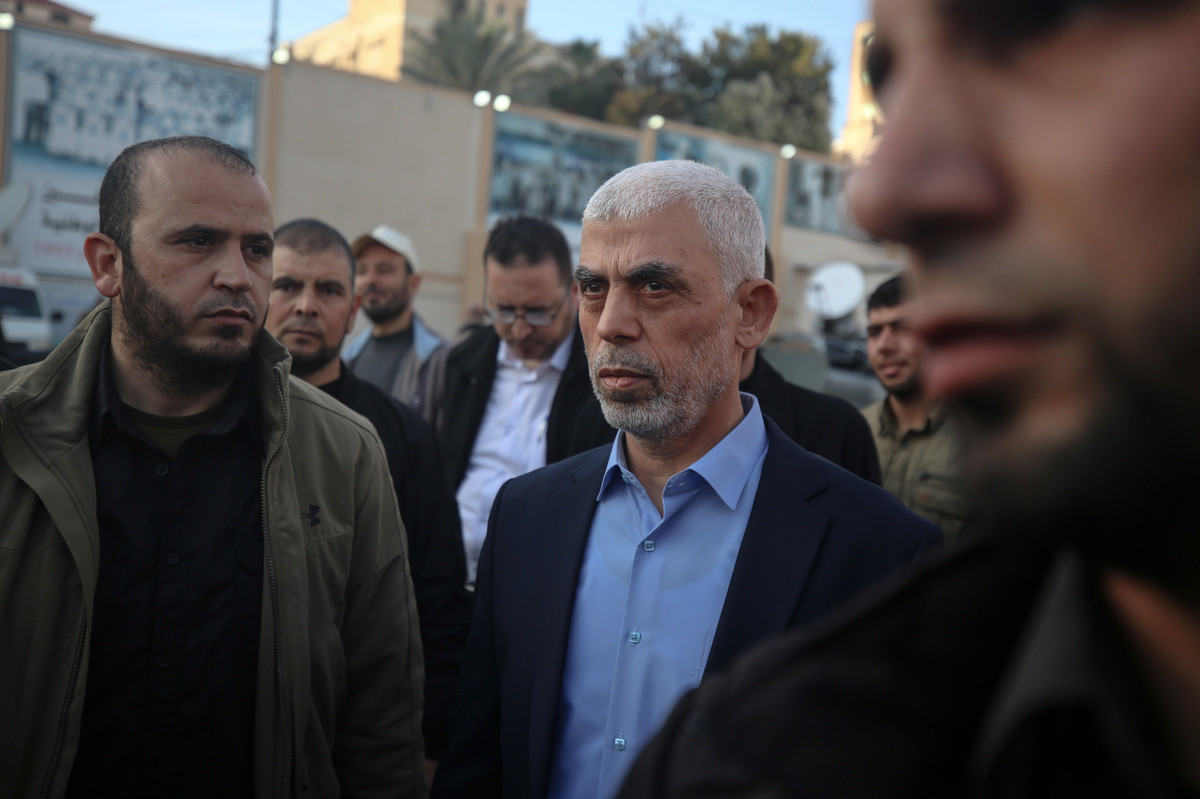Israel's foreign minister has confirmed the death of Yahya Sinwar, the head of Hamas and mastermind of the 7 October attacks on Israel, during an operation in the Gaza Strip. Sinwar, one of the architects of the October 7 attacks, took over as head of Hamas following the assassination of former leader Ismail Haniyeh in Iran in July.
Israel's Foreign Minister Israel Katz described the killing as “a significant military and moral achievement”. He added that Sinwar had been identified among three Hamas militants killed on Thursday, local time, after Israeli officials conducted dental and DNA tests to check whether a body retrieved from a building in Gaza was that of Sinwar.
In a statement, the Israel Defense Forces (IDF) said Sinwar “promoted his murderous ideology both before and during the war, and was responsible for the murder and abduction of many Israelis”. The IDF also stated that Sinwar “was eliminated after hiding for the past year behind the civilian population of Gaza, both above and below ground in Hamas tunnels in the Gaza Strip”.
Israeli Prime Minister Benjamin Netanyahu, in a recorded video statement, said Sinwar’s death offered the chance of peace in the Middle East but warned that the war in Gaza was not over and Israel would continue until its hostages were returned. “Today we have settled the score. Today evil has been dealt a blow but our task has still not been completed,” Netanyahu said.
Hamas has not yet confirmed Sinwar's death, though sources have told Reuters that Sinwar had likely been killed during an Israeli operation in the area of Tal El Sultan, in southern Gaza. Earlier, Israel's Army Radio said there had been a targeted ground operation in the city of Rafah during which Israeli troops killed three militants and took their bodies.
The killing of Sinwar, a major boost to the Israeli military and Prime Minister Benjamin Netanyahu after a string of high-profile assassinations of prominent leaders of Israel's enemies in recent months, could have significant implications for the ongoing conflict in Gaza, for Israel's other campaigns in Lebanon and the occupied West Bank, and for Israel's domestic politics.
The Impact on Hamas
Sinwar's death is likely to throw Hamas into disarray. The organisation will have to find a new overall leader. Sinwar, despite the authority he had gathered over decades, was a controversial choice and, while the succession of his brother would send a powerful message, Mohammed Sinwar would struggle to unify and rally the organisation.
Hamas will portray Sinwar as a martyr and look to frame his death in a way that will inspire new volunteers. However, despite this, the elimination of such a respected leader is unlikely to boost recruitment. Hamas sorely needs new manpower in Gaza, where it has taken heavy casualties.
Major strategic choices postponed by the appointment of Yahya Sinwar will now have to be made under great pressure, with the full knowledge that the Israeli security services are capable of tracking and killing even the most senior officials.
The Impact on Israel
Sinwar’s killing will greatly reinforce Prime Minister Benjamin Netanyahu’s political position and rally his hardline rightwing support base. Netanyahu’s poll ratings were already improving after a series of tactical successes in Lebanon, including the assassination of Hezbollah’s leader Hassan Nasrallah.
The death of Sinwar will undoubtedly be seen by some Israelis, including many in senior posts in the military, intelligence services and government, as a moment to declare victory in Gaza and end what is widely seen as a draining, if necessary, campaign. But how much real difference this could make on the ground is unclear.
There is a possibility that ceasefire negotiations will receive a boost now that one of the two individuals who have been accused of blocking any deal is gone. But the attitude of any successor to Sinwar to talks may not be that different, and Netanyahu has always insisted that military pressure is what will bring back the 100 or so hostages in Gaza, of whom only half are thought to still be alive.
The Broader Implications
The killing of Sinwar, while a major blow to Hamas, is unlikely to bring the multiple conflicts under way in the Middle East to a sudden end. Israel has already switched its focus to the battle against Hezbollah in Lebanon, and more broadly against Iran across the region.
The death of Sinwar will further boost the confidence of Israeli military, intelligence and political officials who have already been greatly encouraged by their recent successes. Much of Israel’s strategic thinking is dominated by the need to restore what it sees as deterrence necessary to its survival, and to permanently weaken Iran.
The elimination of Sinwar is likely to be emotionally satisfying for many Israelis, politically useful for Netanyahu and his supporters, and a major blow for Hamas, but the implications for peace in the region remain uncertain.
The World's Response
The United States has welcomed the news, with President Joe Biden issuing a statement saying that Sinwar’s death was a good day for Israel, the United States, and the world. Biden went on to state that Sinwar, as leader of Hamas, was responsible for the deaths of thousands of Israelis, Palestinians, Americans, and citizens from over 30 countries.
“He was the mastermind of the October 7th massacres, rapes, and kidnappings,” Biden said. “It was on his orders that Hamas terrorists invaded Israel to intentionally – and with unspeakable savagery – kill and massacre civilians, a Holocaust survivor, children in front of their parents, and parents in front of their children.
“Over 1,200 people were killed on that day, the deadliest day for Jews since the Holocaust, including 46 Americans. More than 250 were taken hostage, with 101 still missing. That number includes seven Americans, four of whom are believed to still be alive and held by Hamas terrorists. Sinwar is the man most responsible for this, and for so much of what followed.”
Biden said he would be speaking soon with Prime Minister Netanyahu and other Israeli leaders to congratulate them, to discuss the pathway for bringing the hostages home to their families, and for ending this war once and for all.
The 'Day After'
Biden’s statement included a suggestion that this could be a moment of opportunity for peace in the Middle East. “There is now the opportunity for a “day after” in Gaza without Hamas in power, and for a political settlement that provides a better future for Israelis and Palestinians alike,” he said.
However, others are less optimistic. Benny Ganz, an opposition parliamentarian, praised Sinwar’s death as an “important achievement” but insisted that Israel’s military “will continue to operate in the Gaza Strip for years to come”.

















